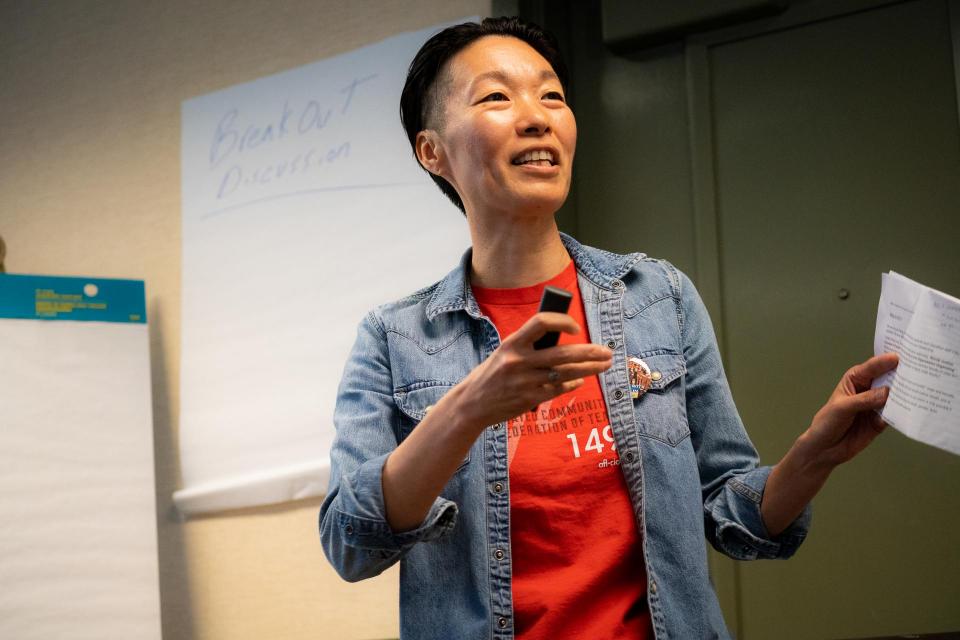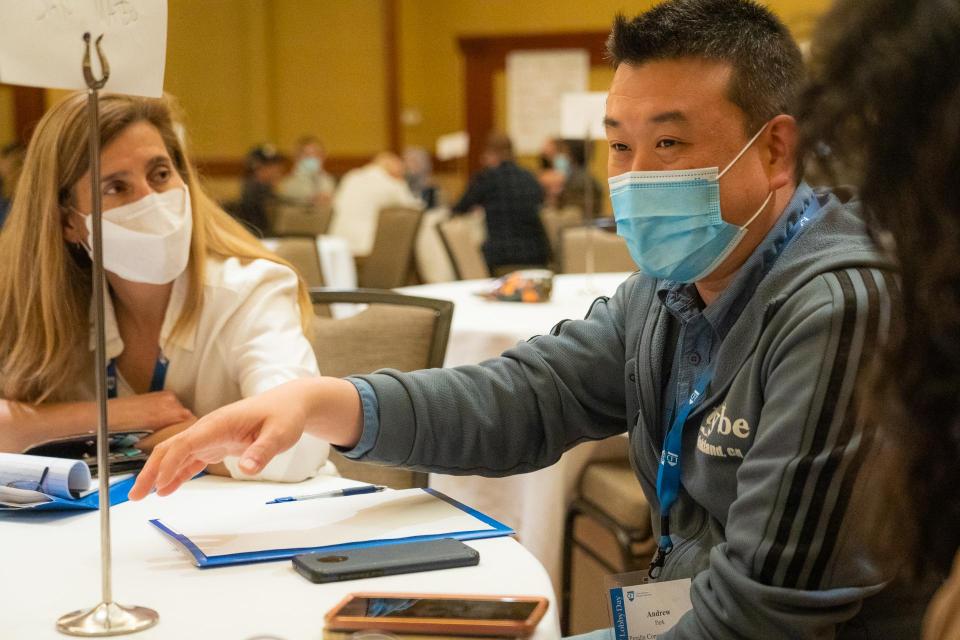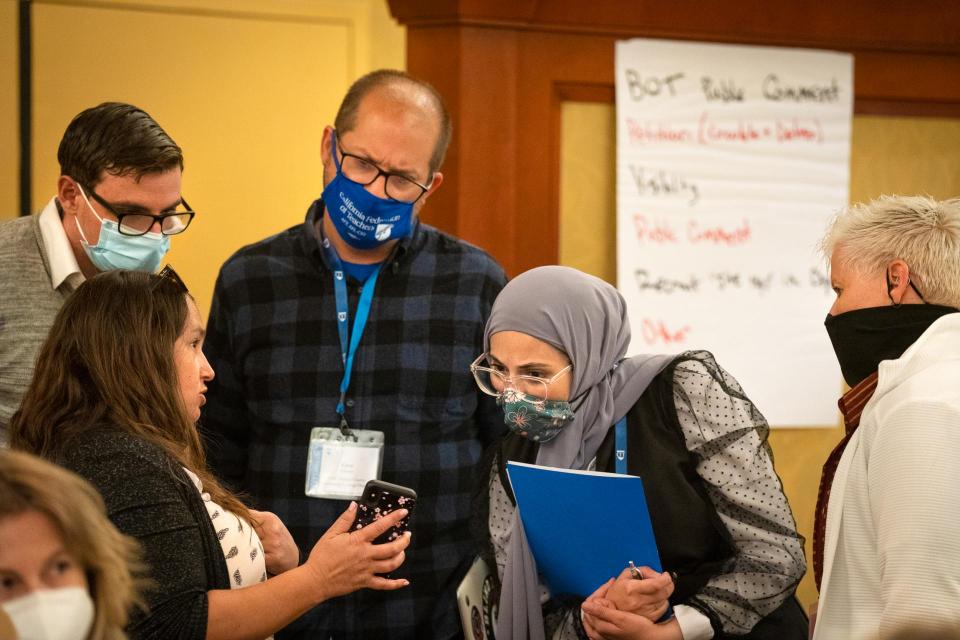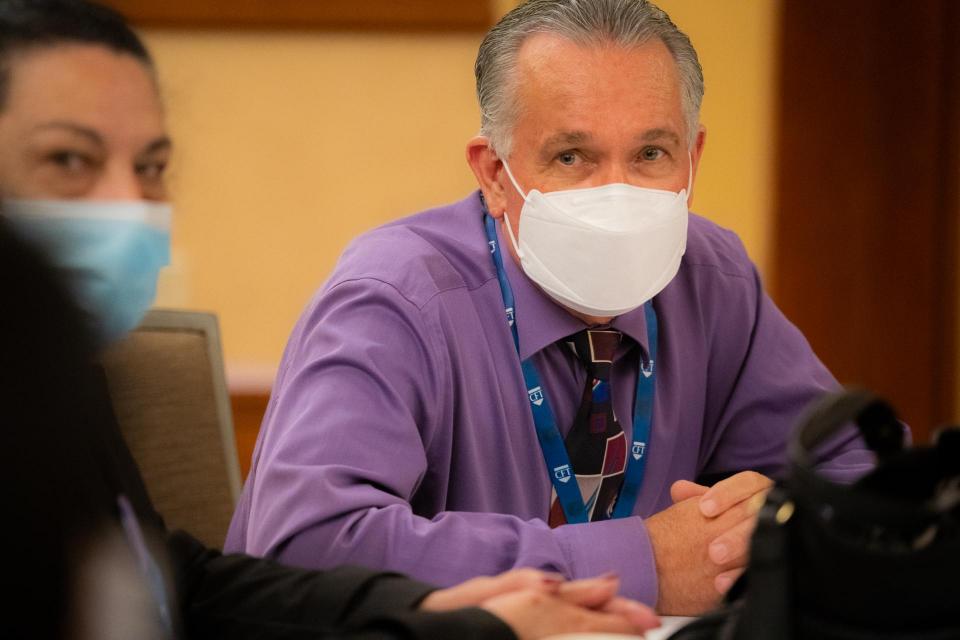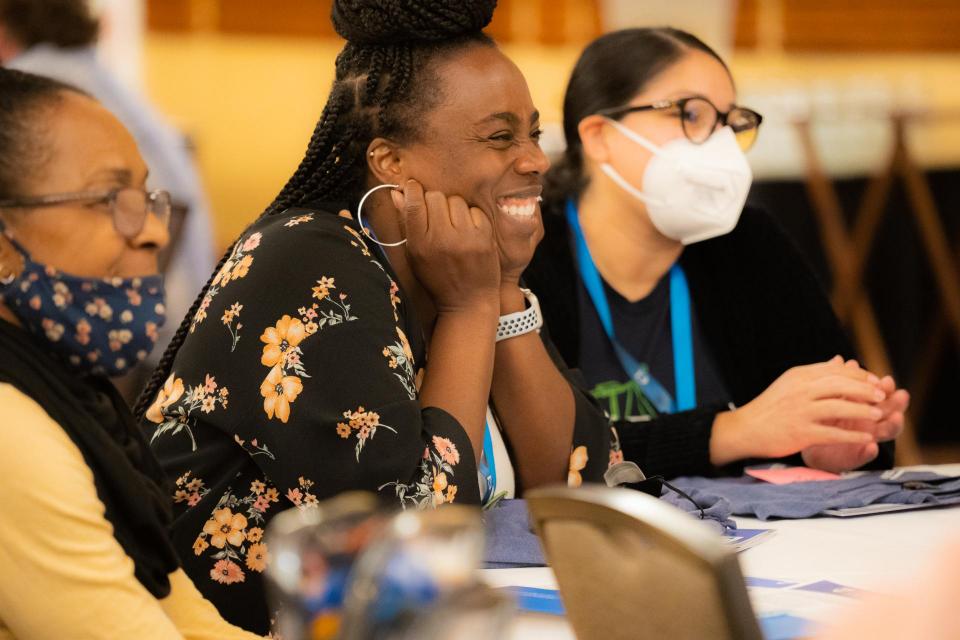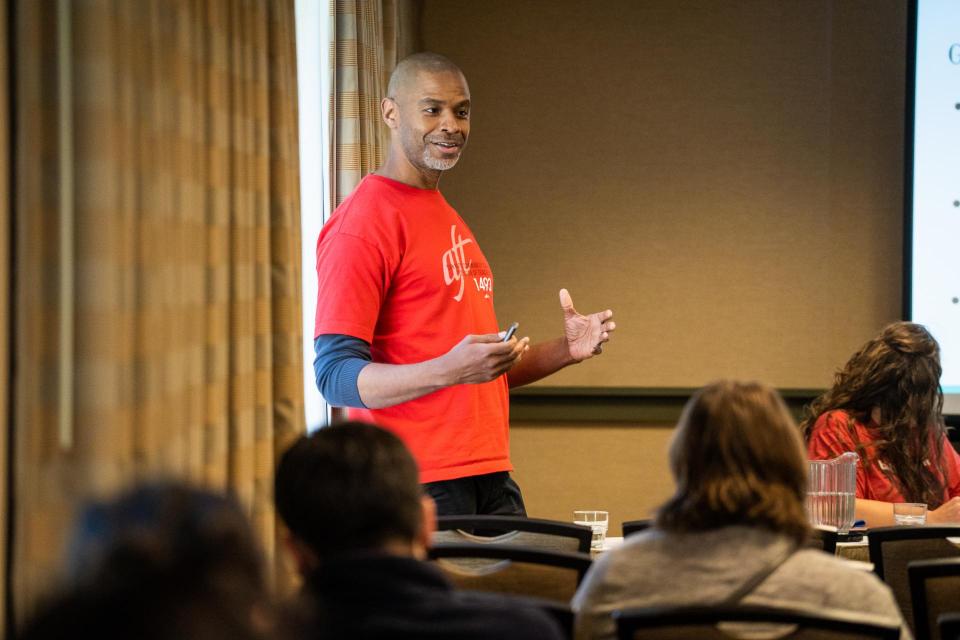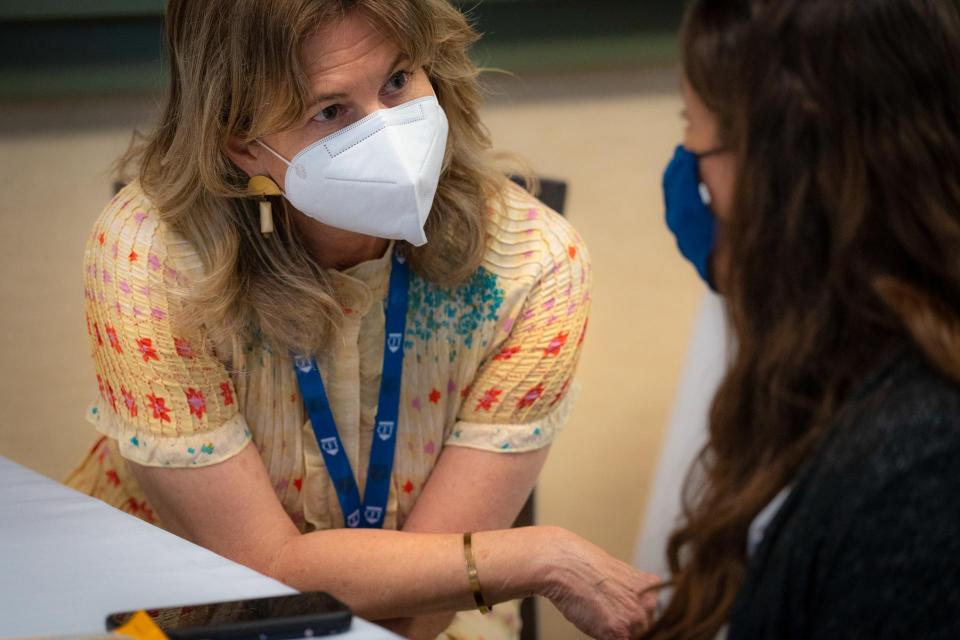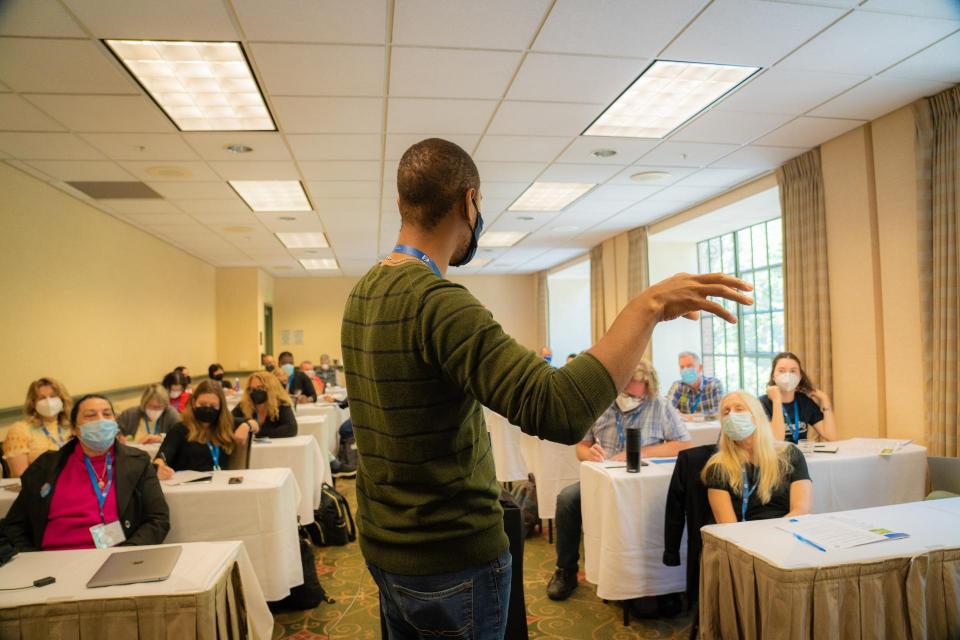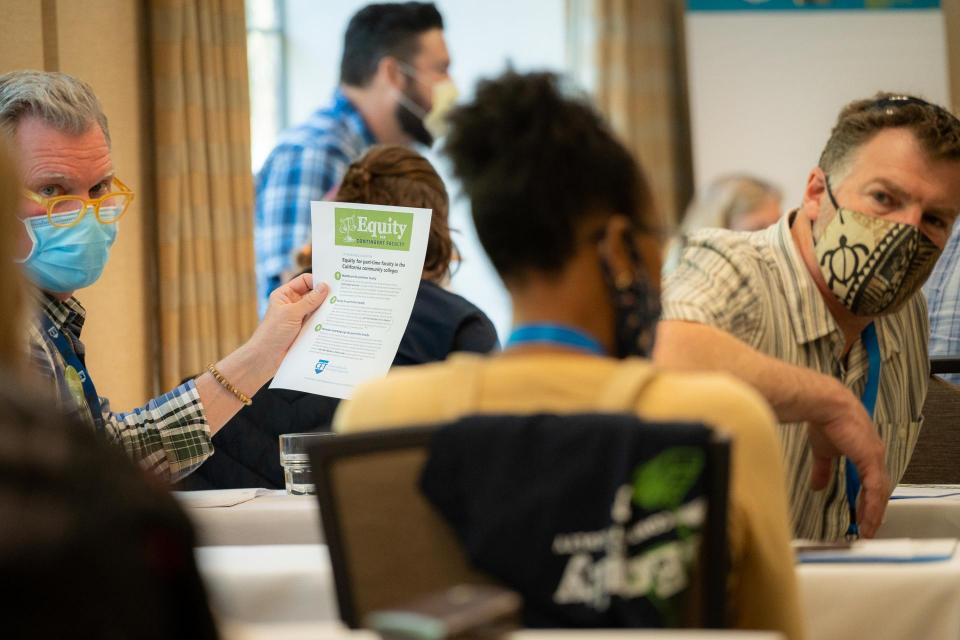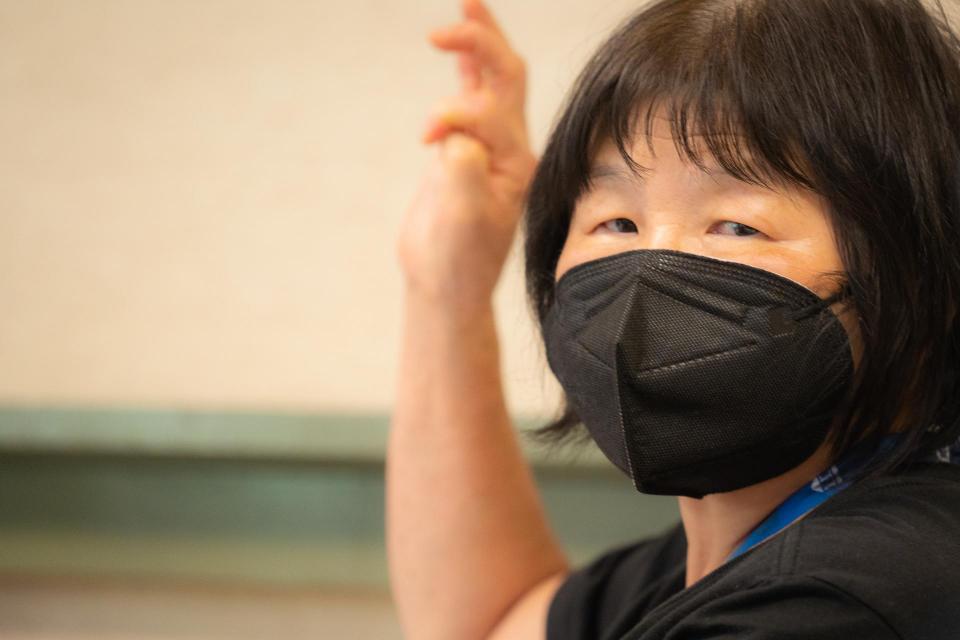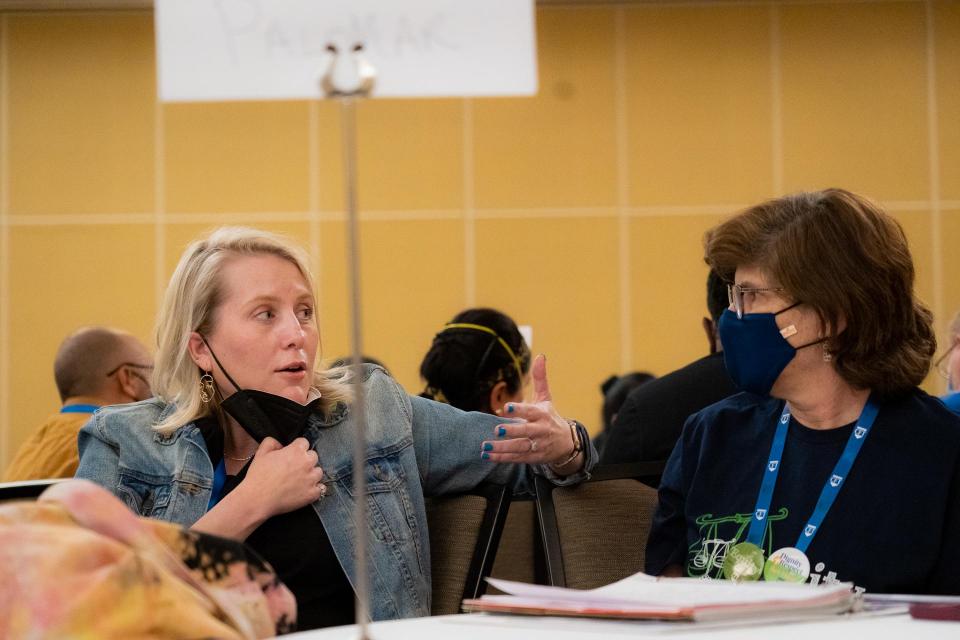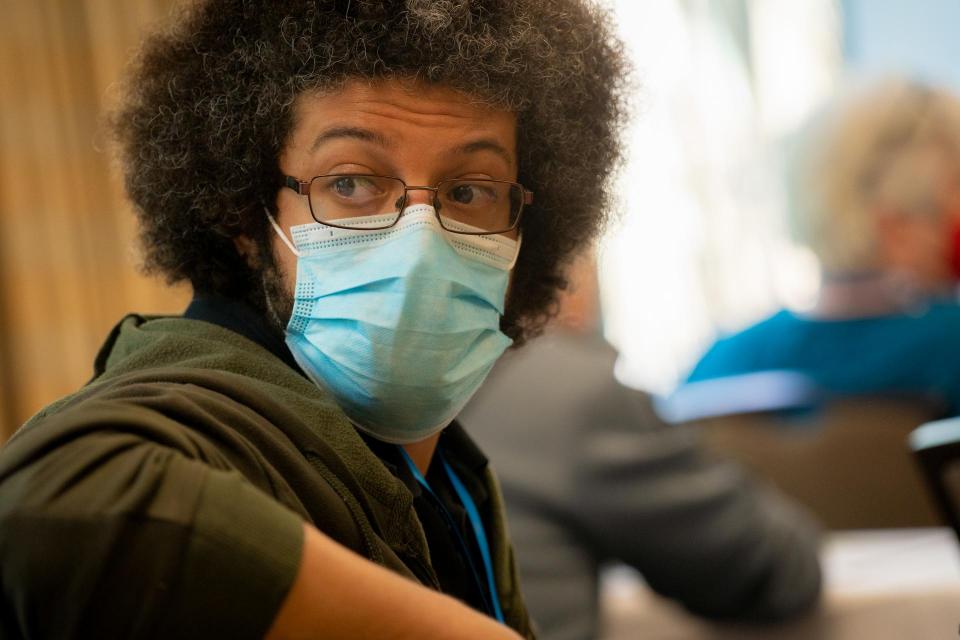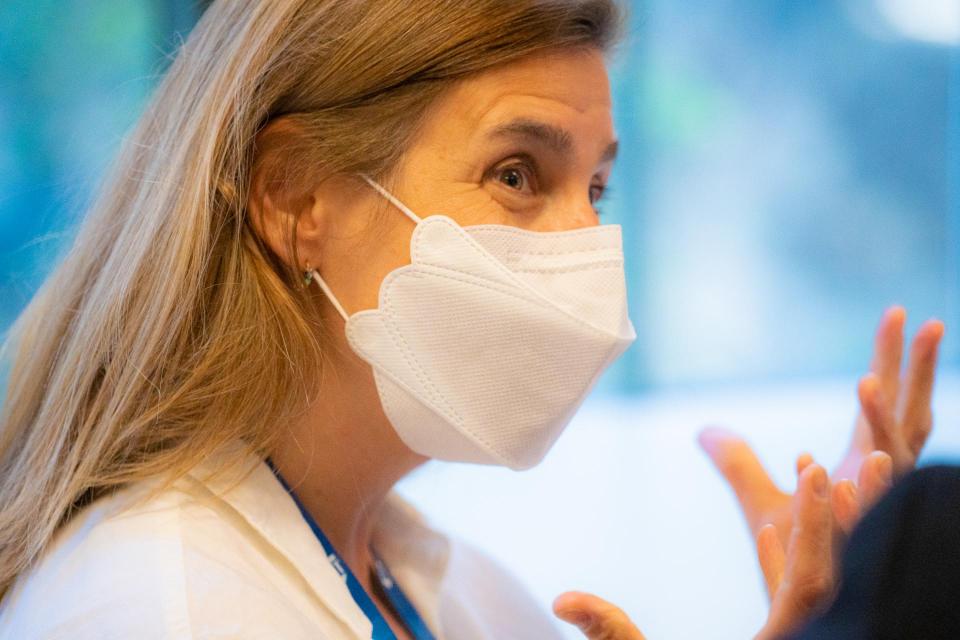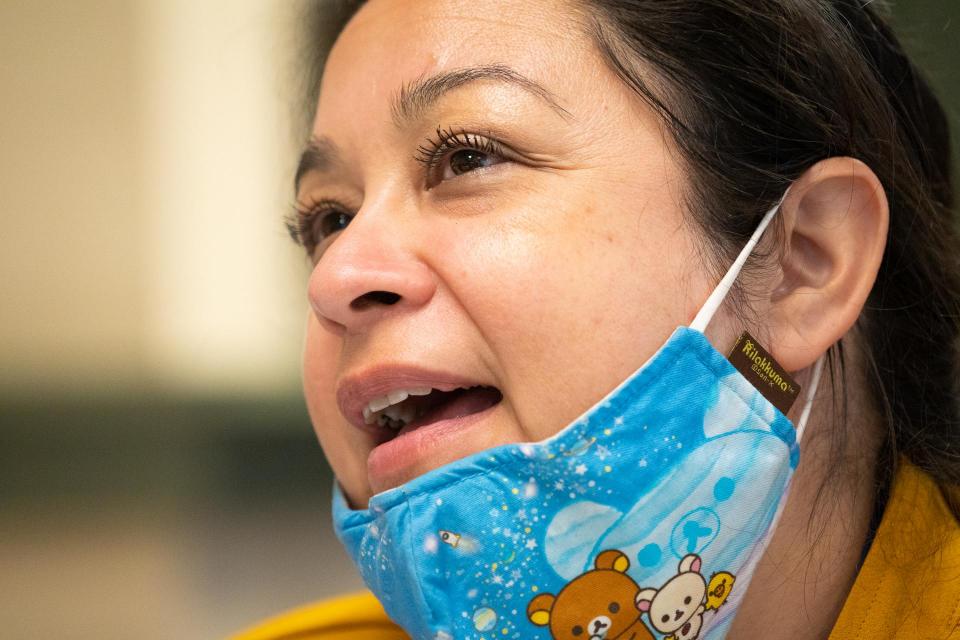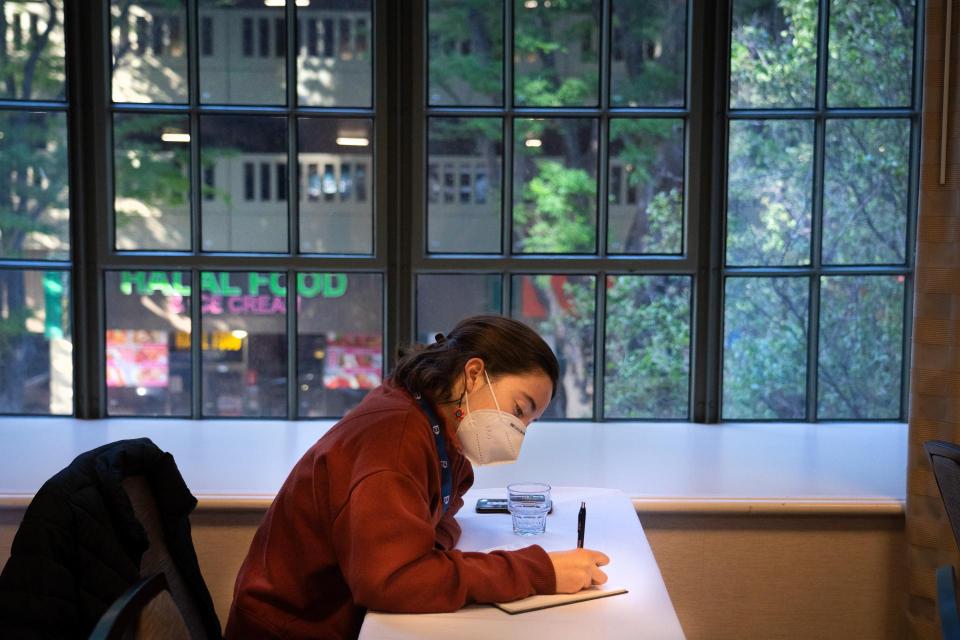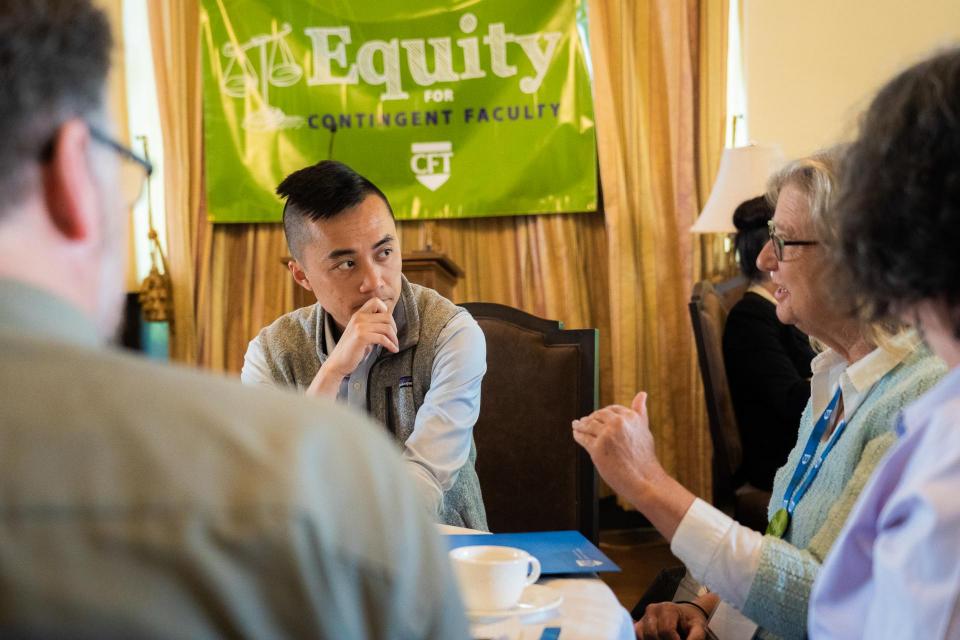When it comes to union work, power and knowledge work hand in hand. Union is not simply about expressing demands, speaking truth to power, and being resolute in the face of adversity. It’s about making connections, sharing truths, building solidarity, empowering, and speaking to be heard.
Developing the knowledge to do these things and putting the power of that knowledge to use was core to the workshops at the CFT Part-Time Faculty Conference held May 1-2 in Sacramento.
Offered in two 75-minute sessions, there were five categories of workshops that participants could attend: Bargaining, Legislative, Organizing, Diversity, and Communications. Each of the workshops was built around providing the necessary tools not simply for the Lobby Day events that would happen the following day, but for attendees to take home with them and use in their local unions and workplaces.
The Healthcare Bargaining: Tools, Strategy, and Coordination workshop, was offered twice with the awareness that getting the $200 million for part-time healthcare is just the first step — the next being having to negotiate to get districts to access that money and offer quality healthcare programs.
The workshop honed in on the issue of healthcare negotiating and discussed the newly released report of CFT’s Part-Time Faculty Survey. It also addressed possible talking points regarding the need for part-time healthcare and how to dispel myths, such as part-time faculty are temporary faculty who can simply get their healthcare from another employer, spouse or partner.
Along with this, presenters showed an “octopus diagram” which, in contrast to a linear benchmark-driven organizing model, looks at a particular goal like a mobilization, and asks people to consider the various “tentacles” of resources or activities that may feed into it or be needed to make the fulfilling the goal easier and more effective. While the first session was packed, the second session had fewer numbers in attendance, but this was a seen as a bonus for attendees who found the smaller session better for individuals and local teams to have an in-depth discussion about strategies specific to their local unions.
The Legislative Priorities workshop provided in-depth information about the healthcare proposal in the state budget and the two bills, as well as legislative talking points for the next day’s visits with legislators. In preparation for Lobby Day, staff lobbyists explained the day’s three main objectives, 1) arguing for the $200 million for part-time faculty healthcare, 2) passage of the pay parity bill AB 1752, and 3) passage of the bill lifting the teaching cap AB 1856. Attendees also learned how communicate effectively with policymakers with a focus on direct communications to legislators and legislative staff.
Those who attended the workshop Organizing: Building Local Union Power were given a basic overview and introduction into increasing membership along with member engagement and involvement. However, while referred to as a kind of “Organizing 101,” a wide variety of attendees found the session useful.
Annette Owens, a part-time faculty member from the El Camino College Federation of Teachers, found it invaluable to hear again about the importance of having member-to-member conversations and liked the idea of “sharing the survey info as a way of mobilizing members around an issue.” Similarly, her colleagues found the session beneficial and commented on the inspirational member involvement success stories, how trainers got people to think about being more innovative in reaching out to part-time faculty, and learning about the possibility of grants that could give her local an organizing boost.
The Diversity, Equity and Inclusion workshop pointed towards making local unions more inclusive and equity-minded, essential to addressing part-time issues in an equity context. From building and engaging membership to mobilization, this will be a critical factor in the work ahead, which is strongly tied to healthcare bargaining should the $200 million in ongoing funding for part-time faculty healthcare be realized.
Finally, the Campaign Messaging and Storytelling workshop focused on how members can be powerful and impactful communicators to administrators, policymakers, and the general public. In the workshop, local leaders and members were encouraged think strategically and develop messages which “come from a place of connection with students” and stress the importance of the work educators do.
Attendees were encouraged to develop authentic messages that told stories versus giving arguments and spoke more from the heart than the intellect. This approach was put into practice as people crafted then recited their personal stories and speeches they planned to present to legislators and their staff the following day. Read our Lobby Day report here.
— By Geoff Johnson, assigning editor of Part-Timer, member of the CFT Part-Time Faculty Committee and the AFT Guild, San Diego and Grossmont-Cuyamaca Community Colleges

